There are multiple reasons to choose an apprenticeship:
You learn while you earn:
As an apprentice you would have opportunity to learn skills of a specific job role from an experienced staff all while earning your wage.
You received Relevant and practical work experience:
Every apprenticeship is designed in a way that teaches you specific set of skills for the job role in your chosen industry. These crucial skills would be learned on the job or off the job; by obtaining the knowledge off the job and gaining skills on the job.
You boost your career prospects:
Every apprenticeship is tailored in a way to gain your invaluable experience and make you an integral part of a company and teach the industry’s needs. These skills and experience attract the prospects from other companies within the same industry or others; in other words, it boosts your prospects in the market.
You avoid student loan:
Most students coming out of the university have thousands of pounds in loan to payback, it is repayable as they reach reasonable salary. But in apprenticeships the government covers the costs, and all the benefits are yours to keep.







